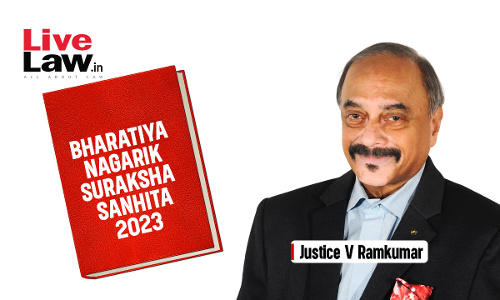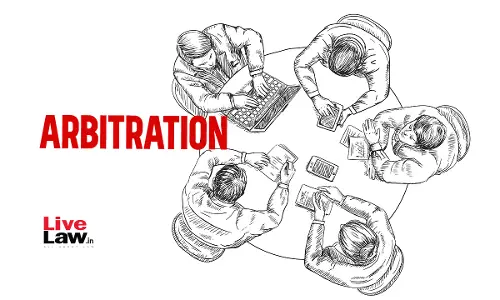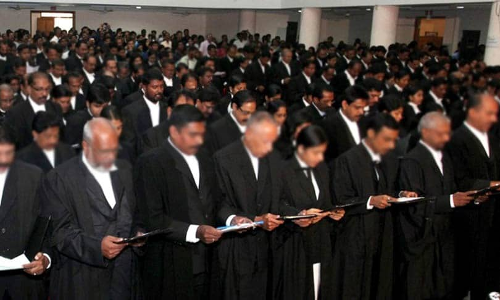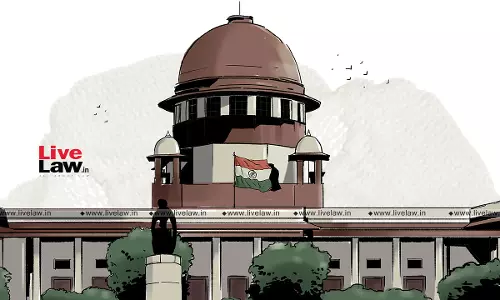Articles
A Deeper Thought On The “Pre-Trial Detention” Of An Accused Person Under Section 187 Of BNSS
C O N T E N T SQ.No:I N N E R T I T L E SCOMPARATIVE TABLE OF S. 167 Cr.P.C. AND S.187 BNSSTHE MECHANICS OF “DETENTION” UNDER SECTION 167 Cr.P.C. AS JUDICIALLY SETTLED ARRESTING OFFICER'S DUTY1What are the pre-requisites and modalities to be followed by an “arresting officer” while arresting a person ?2What are the arresting officer's duty “under Section 167 (1) Cr.P.C.” ?...
Territorial Jurisdiction In Cheque Dishonour Cases: Post-2015 Amendment Position
The territorial jurisdiction of courts in cheque dishonour prosecutions under Section 138 of the Negotiable Instruments Act, 1881 ('N.I. Act') has long been a contested issue. Until the N.I. (Amendment) Act, 2015, Section 142 did not clarify jurisdiction, forcing courts to rely on Sections 177–179 of the Code of Criminal Procedure, 1973 ('CrPC'). These provisions proved ill-suited to the multi-step nature of cheque transactions, leading to conflicting Supreme Court...
'Lawful' Patently Illegal International Commercial Arbitration Awards – A Dichotomy
Sub-Section 2A of Section 34 of the Arbitration & Conciliation Act, 1996, introduced on October 15, 2015, apparently on account of the presumed negative fallout of Oil and Natural Gas Corporation Ltd. v. Saw Pipes Ltd., (2003) 5 SCC 705 for foreign business entities in India and 246th Report of the Law Commission of India (August, 2014), makes a clear distinction between a...
Women In Law: A Long Wait For Justice
As a nation, we recently commemorated 75 years since the Indian Constitution was established and the Supreme Court and High Courts started functioning under the constitution. These institutions have been steadfast protectors of fundamental rights, including the right to equality for all citizens. While women lawyers, alongside their male colleagues, champion these rights in...
Audit Of Arbitration Awards In J&K: A Long-Overdue Accountability Mechanism
The Delhi Government's recent directive to audit all arbitration awards above ₹1 crore passed against government departments in the last 20 years is a watershed moment in public accountability. The Public Works Department (PWD), Water Department, and Irrigation & Flood Control Department have been ordered to submit detailed records of such cases. This measure aims not only to...
Bombay High Court Strikes Down Illegal Transfer Fee Charged By Bar Council
Echoes Supreme Court's concern on Bar Councils' breach of public duty in Gaurav Kumar caseIn a significant judgment reinforcing the rights of advocates and curbing arbitrary practices of State Bar Councils, the Bombay High Court has ruled that the Bar Council of Maharashtra and Goa acted illegally in charging transfer fees for shifting the enrolment of an advocate from one State Bar Council...
What About Us?: India's New Penal Code Abandons Animals To Sexual Violence
“All animals are equal, but some animals are more equal than others” This biting Orwellian satire was intended to expose the duality of power in the book, but now seems to unsettlingly resonate in reality for many strays in India.
International Justice At Crossroads
Born out of the ashes of war, international criminal justice began at Nuremberg with a bold vow: no one would be above the law. Seasons changed to decades, and the ICC and the Ad Hoc Tribunals have become the landmark examples of global accountability. But whether International Criminal Justice in producing justice, or selectively enforcing law based on geopolitics is still a question....
Institutional Appointments After Radiance And Era: When Is Arbitral Tribunal Constituted By Consent?
A recent (July 2025) judgment by the Bombay High Court raised concerns for financial institutions and other entities using Online Dispute Resolution (ODR) platforms to resolve disputes. In Radiance Galore v Yes Bank Ltd (Radiance Galore), the Bombay High Court set aside the arbitral award in favour of Yes Bank on the ground that the arbitrator was unilaterally appointed, even though...
Shelter Without Rights: Constitutional Crisis Of Forced Evictions In Urban India
“India is two countries in one: an India of Light and an India of Darkness” - This line from The White Tiger captions more than a fictional divide. As the India of Light flaunts its 19.6 billion dollar Smart Cities Mission, the other India is living a more difficult reality: over 7,38,000 individuals were evicted and more than 1,50,000 homes were demolished in 2022-2023 alone averaging...
Kolhapuri Chappal Walks Into Court Room
The Cotton Plaid lungi, dried under the blazing South Indian Sun, once wrapped around the laborer's, toddy tappers and farmers had found its way into Houte Coutre in 1960s The dupatta becomes a Scandinavian Scarf, the Lehenga Morphs into a bohemian skirt,When Global Fashion borrows from traditional identity, the line between the appreciation and appropriation blur, they are embodiment...
Liberty Vs Hierarchy: The Debate On Direct Anticipatory Bail Pleas Before High Courts
The Supreme Court has recently criticized the High Court of Kerala for entertaining applications for anticipatory bail which are directly moved before it, without approaching the Sessions Court first.The Supreme Court Bench comprising Justices Vikram Nath and Sandeep Mehta observed that though the concurrent jurisdiction is conferred upon the Sessions Court and the High Court to entertain...




![allahabad high court, cheque dishonour, bank account closed, dishonour of cheque, section 138 of negotiable instruments act, Jatan Kumar Singh Vs. State Of U.P. And Another 2024 LiveLaw (AB) 119 [APPLICATION U/S 482 No. - 2965 of 2021], Justice Anish Kumar Gupta, allahabad high court, cheque dishonour, bank account closed, dishonour of cheque, section 138 of negotiable instruments act, Jatan Kumar Singh Vs. State Of U.P. And Another 2024 LiveLaw (AB) 119 [APPLICATION U/S 482 No. - 2965 of 2021], Justice Anish Kumar Gupta,](https://www-livelaw-in.demo.remotlog.com/h-upload/2023/06/08/500x300_475606-blank-cheque-leaf-triggers-section-139-of-ni-act-if-it-is-voluntarily-signed-and-given-with-intention-of-making-payment-kerala-high-court.webp)








